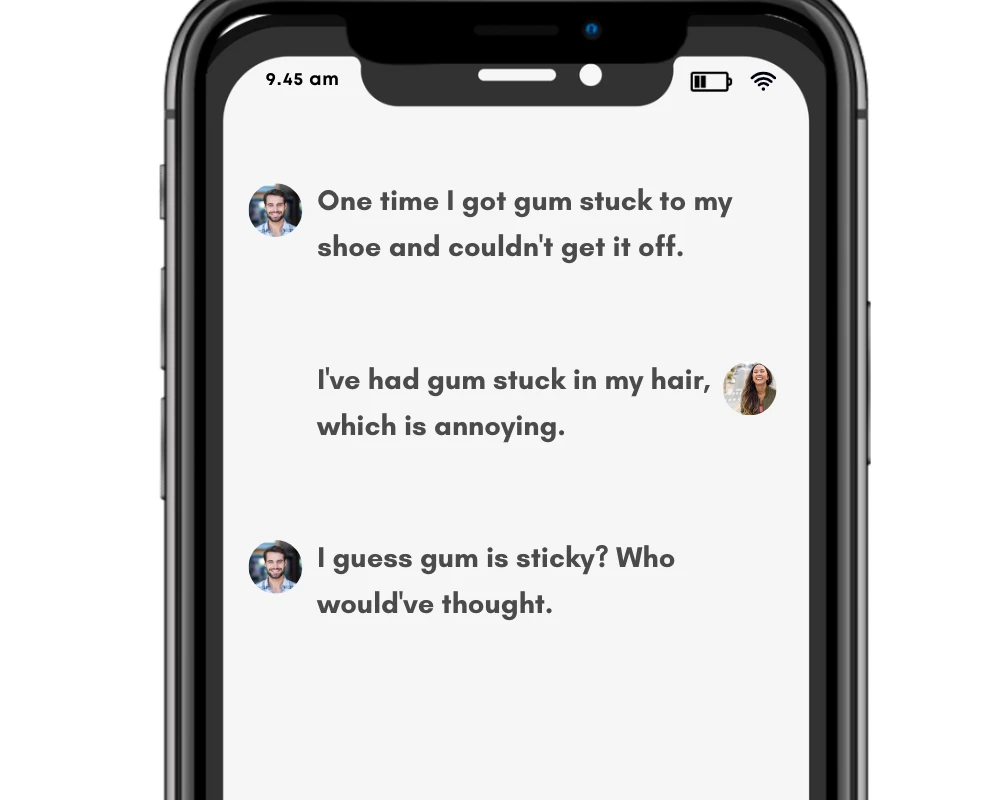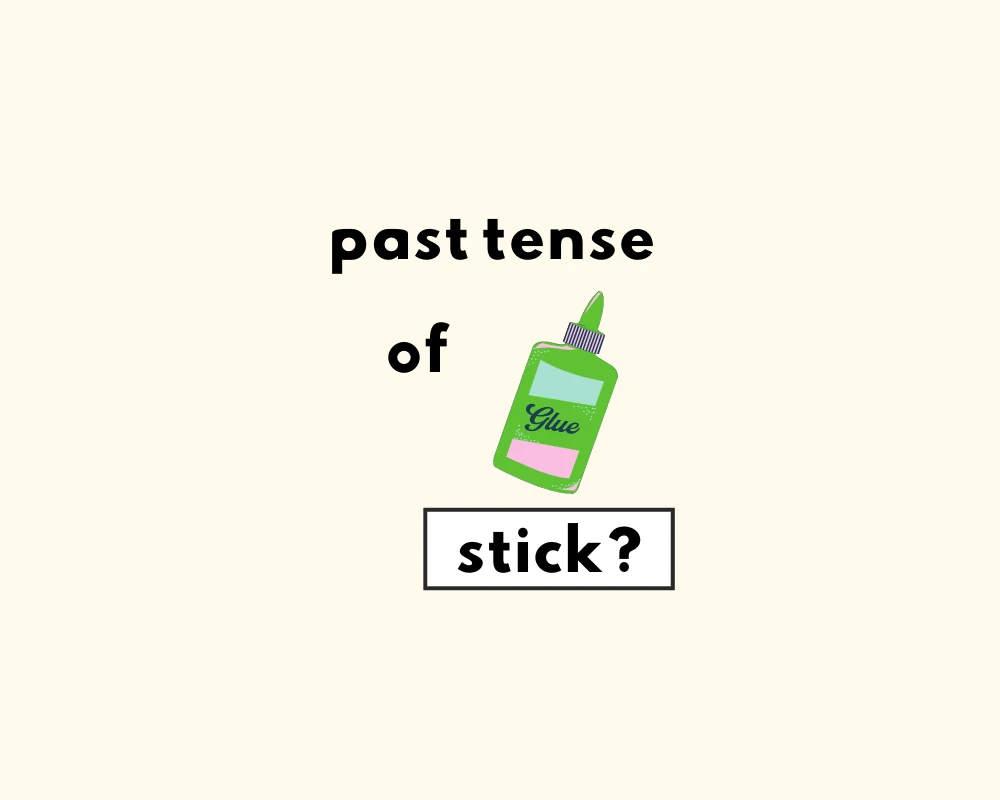
The past tense of “stick”
The verb stick (not to be confused with the noun, stick, as in a branch or twig) is understood as ‘to hit or propel (something, such as a hockey puck) with a stick‘. Also, ‘to hold to something firmly by or as if by adhesion: she stuck to her story‘ (as defined by the Merriam-Webster’s online dictionary—thank Noah Webster for his philological services).
The old car stuck in the mud.
She has always stuck to her principles.
He sticked the photos into an album.
The chewing gum had stick to my shoe.
Forms of the verb stick
| present | past | future | |
| simple | I stick | I stuck | I will stick |
| continuous | I am sticking | I was sticking | I will be sticking |
| perfect | I have stuck | I had stuck | I will have stuck |
| perfect continuous | I have been sticking | I had been sticking | I will have been sticking |
To stick is the present tense: I forgot to stick a stamp on the envelope.
Stuck is the simple past: I stuck the photos into an album.
Stuck is also the past participle: The little boy had stuck his head through the railings.
Irregular verbs like “stick”
Evidently, stick has two forms altogether: stick and stuck. Neither of these ends in –ed, which means that the verb stick is irregular (according to the standards set of regular/irregular verbs by the English language). See the chart of other irregular verbs with two forms:
| base verb | past tense | past participle |
| stick | stuck | stuck |
| sting | stung | stung |
| swing | swung | swung |
| win | won | won |
| strike | struck | struck |
Past tense vs. past participle of “stick”?
Compare these sentences:
Past tense: The nurse stuck the needle into my arm.
Past participle: The key had been stuck in the lock.
In general, what differentiates the past tense from the past participle form of a verb is precisely that the participle is a form of a verb, and not an actual tense, so to speak. Participles are verb-based, and so they pair with an auxiliary/helper verb, which is ‘had‘, (in the second sentence example).
Both the past tense and past participle form of stick (stuck) refer to actions that occurred and were completed fully in the past; how the information is relayed differs slightly. The past participle form in situations where the past event may have an implication on a current or future event; whereas the past simple refers to a fixed point in time in which something took place and was completed. The past participle is also what forms the passive voice and one of the perfect aspects in grammar.
The past tense of “stick,” associate it with the word “stuck” – both sound similar and share the same meaning in the past tense.
See the verb stick in the present tense (in context)
1. I forgot to stick a stamp on the envelope.
2. Her wet hair was sticking to her head.
3. The glue’s useless—the pieces just won’t stick.
4. Her wet clothes were sticking to her body. (present participle)
5. We used glue to stick the broken pieces together.
Examples of stuck in the past tense (in context)
1. He stuck his hands in his pockets and strolled off.
2. He stuck a stamp on the envelope.
3. The nurse stuck the needle into my arm.
4. She stuck a finger into the sugar bowl.
5. I stuck the photos into an album.
Examples of the past participle stuck (in context)
1. I wouldn’t have wanted to be stuck on a desert island with her
2. The key has stuck in the lock.
3. She had got something stuck between her teeth.
4. The little boy had stuck his head through the railings.
5. He said his car had got stuck in the snow.
Synonyms of stick
- adhere
- cling
- hew
- clutch
- fasten
- cleave
Idioms with stick
| phrases | meaning |
| sticks and stones may break my bones, but words will never hurt me | because words don’t cause physical harm it may be ignored |
| stick together | to stay in close proximity or nearby others/someone |
| a stick in the mud | someone who is considered boring/not fun |
| stick and stay, make it play | work hard and stay dedicated to see the results |
| stick out like a sore thumb | to be obvious and conspicuous |
| the sticks | meaning the woods or forest |
| the carrot and the stick | a way to reward/stimulate activity through motivation |
| throw spaghetti at the wall and see what sticks | to make numerous attempts to see what succeeds |
| stick to your guns | stay truthful to yourself and your beliefs |
| to get the short end of the stick | to get an unfavourable outcome/deal |
Work Sheet
What is the simple past tense form of the verb “stick”?
According to the blog post, which form of “stick” is considered incorrect?
Which sentence correctly uses the past tense of “stick”?
Which sentence correctly uses the past participle form of “stick”?
Why is “stick” classified as an irregular verb according to the post?
The old car in the mud.
She has always to her principles.
The chewing gum had to my shoe.
The nurse the needle into my arm.
The little boy had his head through the railings.
Frequently Asked Questions
What is the simple past tense of stick?
+
Is stick a regular or irregular verb?
+
What is the past participle of stick?
+
Can I say ‘sticked’ for the past?
+
How is past tense ‘stuck’ used?
+
Yash, D. "What’s the Past Tense of Stick? Stick or Stuck?." Grammarflex, Jun 20, 2025, https://www.grammarflex.com/stick-or-stuck-whats-the-past-tense-of-stick/.
Sources
-
Harper, Douglas. “Etymology of stick.” Online Etymology Dictionary, https://www.etymonline.com/word/stick. Accessed 16 January, 2023.











